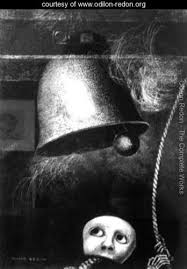knell
英 [nel]
美 [nel]
- n. 丧钟声;凶兆;哀伤的声音
- vi. 鸣丧钟;预报凶兆;发出哀伤之声
- vt. 敲丧钟召集
星级词汇:

记忆方法
记忆“knell”这个单词,可以将其拆分为“kn”和“ell”。将“kn”想象成一个响亮的声音,而“ell”就像是一个低沉的钟声。这样的声音组合可以暗示“knell”通常与死亡或结束有关,因为它是钟声的一种,通常用于报丧。
以上内容由AI生成, 仅供参考和借鉴
中文词源
knell 丧钟声
来自古英语cnyll,缓慢而沉重的钟声,拟声词。引申词义丧钟声。拼写可能受bell影响。
英语词源
- knell (n.)
- Old English cnyll "sound made by a bell when struck or rung slowly," perhaps of imitative origin. The Welsh cnull "death-bell" appears to be a borrowing from English. For vowel evolution, see bury.
- knell (v.)
- Old English cnyllan "to toll a bell; strike, knock," cognate with Middle High German erknellen "to resound," Old Norse knylla "to beat, thrash;" probably imitative. Related: Knelled; knelling.
权威例句
- 1. The tax increase sounded the death knell for the business.
- 税赋的增加为这个企业敲响了丧钟。
- 2. It's going to be the death knell of the red deer.
- 这将导致马鹿的灭绝。
- 3. The arrival of large supermarkets sounded the death knell of many small local shops.
- 大型超市的出现宣告了许多地方小商店的终结.
- 4. That is the death knell of the British Empire.
- 这是不列颠帝国的丧钟.
- 5. At first he thought it was a death knell.
- 起初,他以为是死亡的丧钟敲响了.
